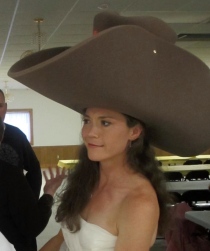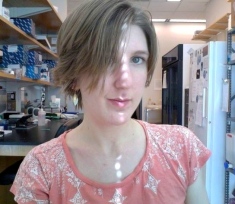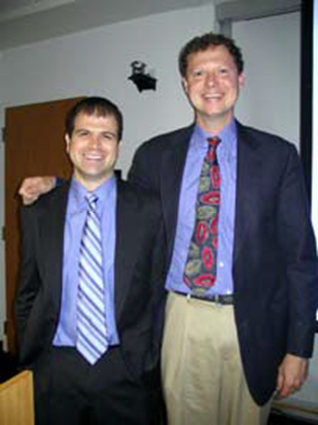By Amielle Moreno
I asked upper-classmen, who were close to finishing, a simple question: what’s it like to be sooo close to graduation? Several of them were generous enough with they’re precious time to share their insight and advice with the Central Sulcus:
 Steve Ryan: Meet with your committee regularly. I avoided meeting with mine for years because I felt like I knew what I needed to be working on, and I didn’t feel like I had anything new to tell them. I didn’t want to waste their time, so I just didn’t schedule meetings, but it’s good practice to stay in touch with them, update them on your progress and your challenges. They’re there to make time for you and advocate for you, don’t avoid them.
Steve Ryan: Meet with your committee regularly. I avoided meeting with mine for years because I felt like I knew what I needed to be working on, and I didn’t feel like I had anything new to tell them. I didn’t want to waste their time, so I just didn’t schedule meetings, but it’s good practice to stay in touch with them, update them on your progress and your challenges. They’re there to make time for you and advocate for you, don’t avoid them.
 Kathy Reding: I have a quote: “It’s the worst.” My advice is start drafting your dissertation way before it’s due or write a review paper with your PI.
Kathy Reding: I have a quote: “It’s the worst.” My advice is start drafting your dissertation way before it’s due or write a review paper with your PI.
 Lani King: Start and finish an experiment as soon as you can. Set up something small that should have a clear and large effect and use good negative and positive controls (when at all possible). A satisfactory completion is cathartic and motivating.
Lani King: Start and finish an experiment as soon as you can. Set up something small that should have a clear and large effect and use good negative and positive controls (when at all possible). A satisfactory completion is cathartic and motivating.
Constance Harrell Shreckengost : Panic-inducing. I feel as if I should be so far along, and yet there is still so much to do. Sometimes I feel as if I used to know so much and now every day I know less and less (but maybe that’s a good thing). There’s this need to focus and yet there is so much I still want to do and explore. I think Lani said it – ask a small testable question that will ideally have with a clear and large effect with all the right controls . Make a PLAN and stick to it (as much as possible – this is never possible). When you have to stray from your plan/things fail, wrap it up, write it up, PUBLISH, and move on. Collaborate with your labmates or peers or even people outside of your field to discover something new. Also, take time to figure out what you enjoy doing. Right now actually IS the rest of your life, so get living. Treat your body well, spend time with the people you like, appreciate the fun stuff that you get to do, be NICE to people, don’t hate.
: Panic-inducing. I feel as if I should be so far along, and yet there is still so much to do. Sometimes I feel as if I used to know so much and now every day I know less and less (but maybe that’s a good thing). There’s this need to focus and yet there is so much I still want to do and explore. I think Lani said it – ask a small testable question that will ideally have with a clear and large effect with all the right controls . Make a PLAN and stick to it (as much as possible – this is never possible). When you have to stray from your plan/things fail, wrap it up, write it up, PUBLISH, and move on. Collaborate with your labmates or peers or even people outside of your field to discover something new. Also, take time to figure out what you enjoy doing. Right now actually IS the rest of your life, so get living. Treat your body well, spend time with the people you like, appreciate the fun stuff that you get to do, be NICE to people, don’t hate.
 Katy Shepard: I literally started writing my dissertation yesterday; I’m probably in a better position to receive advice than to give it. I will say that if you start by making all the cover pages and such that LGS makes you put at the front of your dissertation, you can get through 10 pages on your first day of writing.
Katy Shepard: I literally started writing my dissertation yesterday; I’m probably in a better position to receive advice than to give it. I will say that if you start by making all the cover pages and such that LGS makes you put at the front of your dissertation, you can get through 10 pages on your first day of writing.
 Laura Mariani: You’re probably working hard on a lot of small problems. Your goal is to tell a story that can get published with you as the first author. If your bits of data don’t flow together, you can end up doing a lot of work with very little to show for it on your CV. Don’t just think of your project as aims in a grant; think of it as figures in a manuscript, down to the nitty-gritty of which controls have to be in supplemental figure 38 to keep Reviewer #3 happy. Also, put at least one person on your thesis committee who scares you. By the end of grad school you will have learned to impress them, or at least to manage them, and that’s a good skill to have under your belt.
Laura Mariani: You’re probably working hard on a lot of small problems. Your goal is to tell a story that can get published with you as the first author. If your bits of data don’t flow together, you can end up doing a lot of work with very little to show for it on your CV. Don’t just think of your project as aims in a grant; think of it as figures in a manuscript, down to the nitty-gritty of which controls have to be in supplemental figure 38 to keep Reviewer #3 happy. Also, put at least one person on your thesis committee who scares you. By the end of grad school you will have learned to impress them, or at least to manage them, and that’s a good skill to have under your belt.
Jeanne McKeon: It’s never too early to start writing your  dissertation. Start working on the introduction asap, and as a bonus, you may be able to submit a portion of it as a review article well before your dissertation is due. Taking time out for coffee and ice cream breaks with friends is also highly recommended.
dissertation. Start working on the introduction asap, and as a bonus, you may be able to submit a portion of it as a review article well before your dissertation is due. Taking time out for coffee and ice cream breaks with friends is also highly recommended.
Drew Solyst: Here is my submission.
